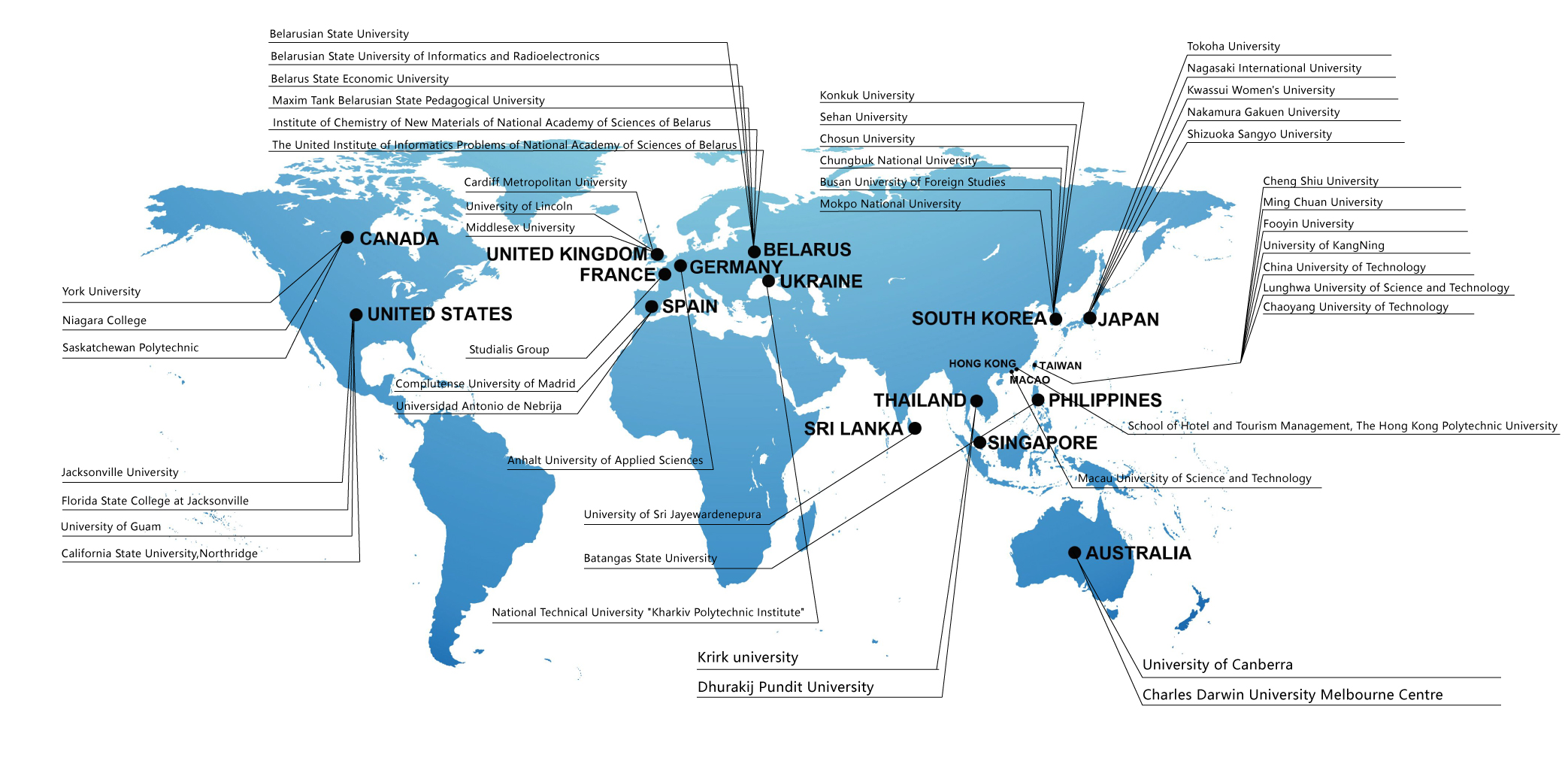ZJSRU have made full use of our advantages within the private sector to improve in scale, standard, laying a solid foundation for internationalization. At present, ZJSRU has established cooperative relations with over 90 universities and institutions in moren than 20 different countries or regions, including Japan, South Korea, The United States, Canada, The United Kingdom, France, Germany, Spain, Australia, Belarus, Sri Lanka, Thailand, Taiwan, Hong Kong, Macao, etc. These cooperative partnerships include the exchange of lectures, seminars, staff training, student exchanges, and mutual recognition of credits, joint education cooperation, double degree programs, scientific research cooperation and cultural exchange activities.

Since 2014, through cooperation with experts from Belarus,Turkey, the Netherlands, Portugal, Greece, Italy and other countries, 33 projects were approved, including national high-end foreign expert projects, international (regional) cooperation and exchange projects of the National Natural Science Foundation, key research and development plans of the Ministry of Science and Technology (international cooperation), Zhejiang Province's talent introduction projects, and Zhejiang Province's international science and technology cooperation projects in professional fields such as information science, life science, environment and earth science. Among them, 27 projects have been approved by the state. In addition, we established Zhejiang-Netherlands Joint Laboratory for Digital Diagnosis and Treatment of Oral Diseases, and are collaborating with the Hong Kong Institute of Medical Engineering to establish a joint laboratory for screening and prevention of cardiovascular and cerebrovascular diseases, and are working with the University of Antwerp in Belgium aimed to establish Exposure Science Research Center.
A large number of International Conferences has been held in the University, such as the Modern Service Industry Development Forum, Cross-strait Seminar on Teaching and Application of Management Statistics, China-Belarus Youth International Forum, Technical Exchange Meeting on the Analysis and Detection of Ionic Compounds, Summit Forum on Modern Medical Education, The 20th Biennial International Conference of Asian Home Economics, and International conferences on key technologies of image understanding for smart cities. These international conferences vigorously promote international academic exchange and the cooperation of science and technology between the Universities.
In today’s increasingly fierce international competition, the optimal allocation of educational resources and human resources have become a decisive factors for international competitiveness and sustainable development. The standard of internationalization has become an important indicator to measure the running potential of a university. Confronting both opportunities and challenges, ZJSRU has: firmly set up the principle of international education; made full use of international high-quality education resources; deepened multi-level international cooperation and exchanges; actively constructed a bright and distinctive international education pattern within its university, colleges, research institutions, teachers and students.









